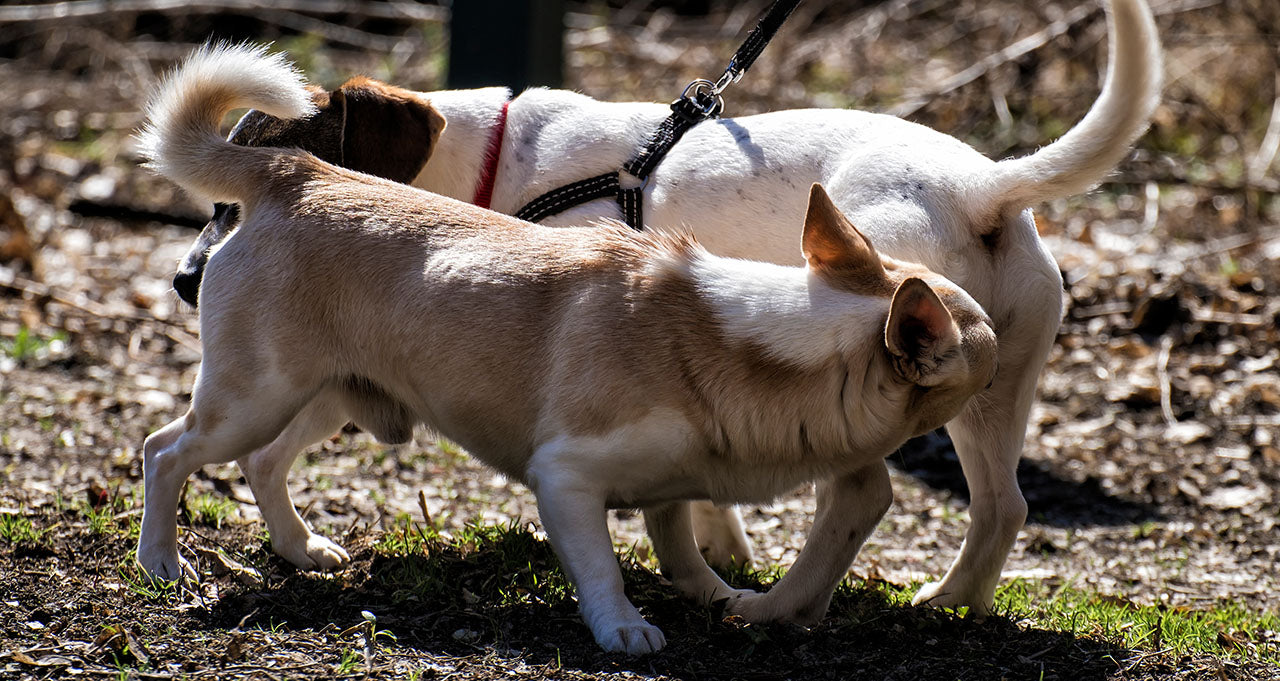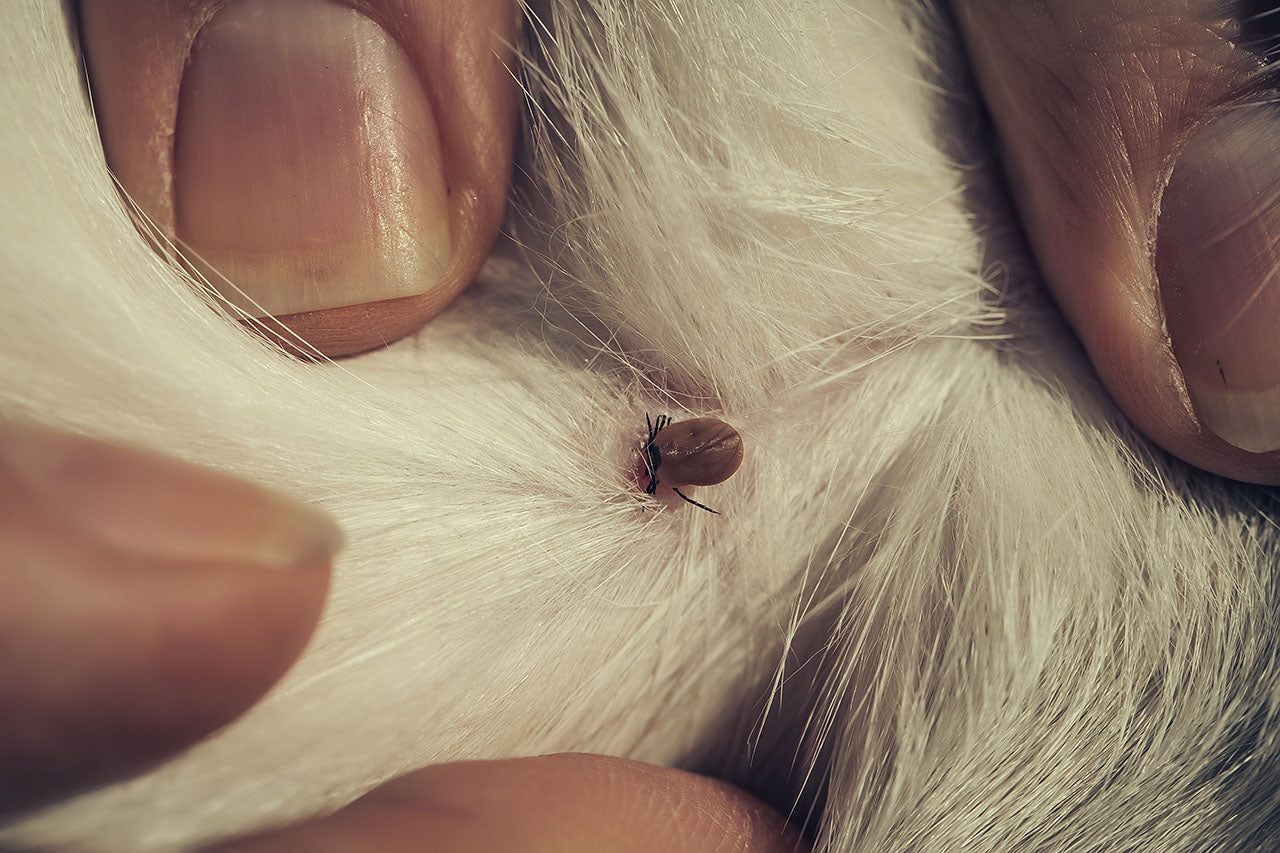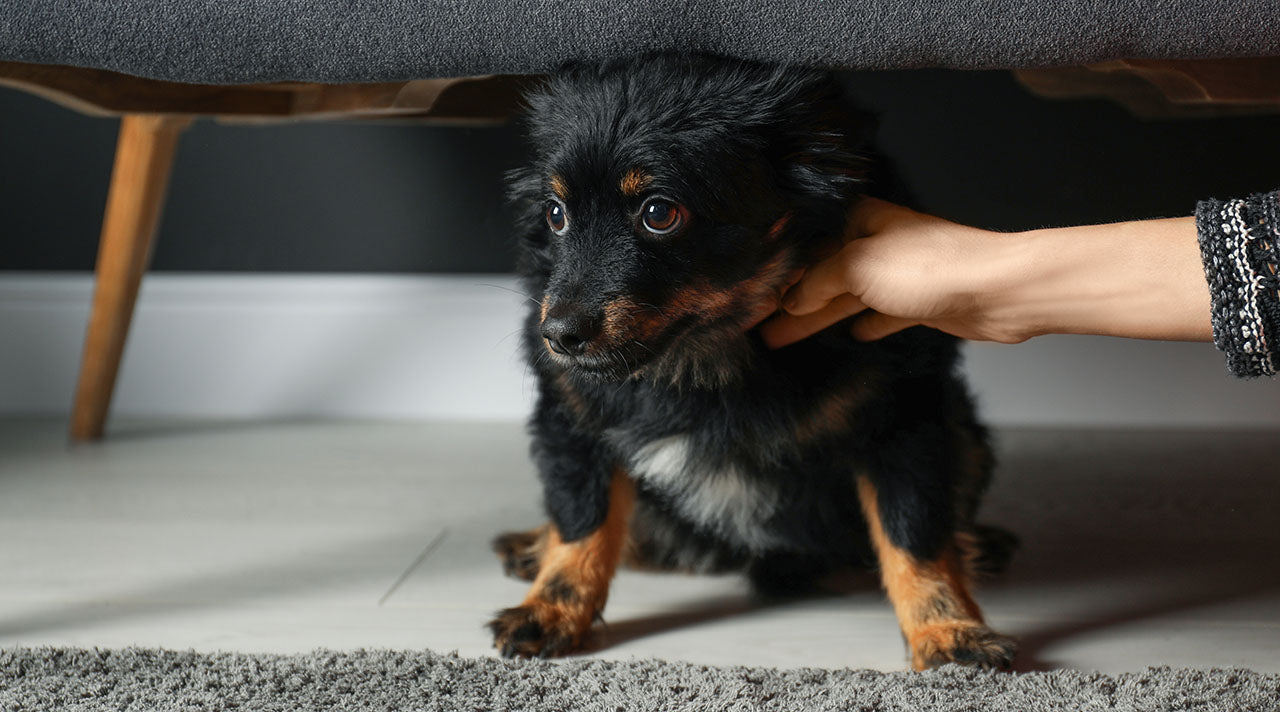The anal glands play a crucial role in the communication behavior of dogs, but can also very often lead to problems. They can become blocked and thus lead to unpleasant and painful inflammation. Reason enough for us to take a closer look at this topic:
Anal glands – what are they actually?
Anal glands (also called anal sacs) are located to the left and right below the dog's anus. They have a volume of about 0.25 ml in small dogs and up to 7.5 ml in large dogs. With a size of about 10 - 15 mm, anal glands are not particularly large. The anal sacs have a 1 - 2 mm narrow duct through which the secretion escapes.
Anal gland secretion as a means of communication
Anal gland secretion plays an important role in communication for dogs. Dogs use the secretion to leave behind their individual scent, which gives other dogs information about their identity, gender, age and state of health. By releasing the secretion, dogs also mark their territory. In other words, they show their presence. It's like leaving a flag with the inscription "I was here". The anal gland therefore serves as a scent and marking gland, so to speak.
Dogs may also empty their anal glands when they are frightened.
How do you recognize blocked anal glands?
Typical signs that indicate a blocked anal gland are so-called sledding (sliding on the rear end) and licking and biting in the anal region. Skin inflammation, redness and swelling around the anal region can also occur.
Causes of Anal Gland Blockage
Normally, small amounts of anal gland secretion are released automatically when defecating. However, if this does not happen, it can cause problems. They can then become blocked and inflamed. This in turn can lead to the formation of abscesses.
Anal gland blockage is often caused by secretions that are too hard and stools that are too soft. If the stools are too soft, not enough pressure is exerted on the anal glands when defecating and the secretions are not released.
Anal gland inflammation – what to do?
If there are signs of anal gland blockage or inflammation, a veterinarian should be consulted who can professionally express the glands and treat any inflammation. A veterinarian can also perform a rinse and administer anti-inflammatory medication if necessary.
In dogs that suffer from recurrent anal gland blockages, inflammation or even abscesses, the anal glands should be emptied manually on a regular basis. In severe cases where conventional prevention is not sufficient, surgical removal of the anal glands may even be recommended.
However, anal glands of dogs that generally have no problems with them should not be emptied regularly as a preventative measure, as this would unnecessarily stimulate secretion production.
Prevention – Preventing Anal Gland Problems
A common cause of anal gland blockage is soft stools. Therefore, it is important to support bowel function with a healthy diet and to check why the stool does not have the optimal consistency.Possible causes can be
- allergies/intolerances,
- Feeding dairy products and
- too much offal, connective tissue and fat
be.
In particular, dietary fibre has a positive influence on the consistency of the stool. Dietary fibre is found, for example, in psyllium husks so that feeding psyllium husks can firm up the stool. But be careful: too much fiber can liquefy the stool consistency. This can then be used to help with constipation.
Solidification of the faeces can also be achieved by feeding bones and calcium replacement supplements possible. However, this requires a requirement calculation in order to avoid malnutrition. Careless addition to complete feed is therefore not advisable.























